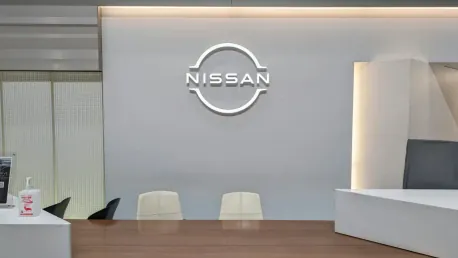Japanese automotive giants Nissan Motor and Honda Motor have embarked on a groundbreaking collaboration to develop next-generation software technologies. Initially announced in March, the partnership aims to deepen their strategic ties in several critical areas, including batteries and e-axles. This initiative has invited Mitsubishi Motors, in which Nissan holds a 34% stake, to explore mutual interests in vehicle electrification.
Collaborative Efforts in Software Development
Joint Research on Software Technologies
Nissan and Honda are pooling their resources to jointly research next-generation software over the coming year. Honda’s CEO, Toshihiro Mibe, emphasized that this partnership will enhance competitiveness by leveraging collective data processing capabilities and a larger pool of engineers. The primary focus is on establishing a robust software platform to drive their next-gen vehicles. This initiative highlights the significance of creating a unified digital framework that can manage everything from vehicle performance to user interfaces, crucial for modern electric vehicles (EVs).By focusing on the development of sophisticated and integrated software, Nissan and Honda are positioning themselves to better compete in a market that increasingly values advanced technology. The joint efforts aim to produce software that can seamlessly integrate into various vehicle models, thereby offering a more cohesive experience for consumers. Furthermore, this partnership will allow both companies to share intellectual property, reduce redundant research efforts, and ultimately speed up the development process. The collaboration extends beyond mere software to include vital systems for autonomous driving and enhanced vehicle connectivity, setting the stage for significant innovations in the automotive sector.
Standardization and Collaboration
As part of their strategic efforts, the companies plan to standardize the specifications for EV battery cell modules. This move aims to make the batteries interchangeable across both brands’ vehicles. They are considering sourcing batteries manufactured by L-H Battery Company, a Honda and LG Energy Solution venture, for Nissan in North America by 2028 or later. Standardizing battery modules can lead to substantial cost savings and supply chain efficiencies, critical as the companies ramp up their EV production.This standardization effort reflects a broader industry trend aimed at reducing the complexities involved in electric vehicle manufacturing. By creating interchangeable battery modules, Nissan and Honda can streamline their production processes and reduce the reliance on unique, model-specific components. This approach not only simplifies manufacturing but also provides consumers with more versatile and adaptable options. In doing so, both automakers can better meet the diverse needs of their customer base while reducing costs and increasing production efficiency. The future feasibility of this strategy is bolstered by combining expertise and resources, underscoring a commitment to advancing EV technology.
Strengthening Strategic Partnerships
Memorandum of Understanding
In a significant step, Honda and Nissan have signed a memorandum of understanding to solidify their partnership. This agreement seeks to deepen strategic ties and envision a cooperative future, including the standardization of e-axles for next-gen battery-powered vehicles. Such measures are crucial for staying competitive in the evolving automotive landscape. By formalizing their collaboration, the companies aim to align their technological development, making it easier to share innovations and best practices.The memorandum of understanding is not just a formal agreement but a strategic framework guiding future collaborative efforts. It outlines joint goals and sets the stage for continued cooperation in a rapidly evolving market. The shared commitment to e-axles—an essential component in EVs—marks a significant step toward harmonizing their vehicle platforms. By doing so, they can better allocate resources, reduce development times, and enhance overall product quality. This standardization will also facilitate more efficient and flexible manufacturing processes, crucial as both companies scale up their EV operations. Essentially, this partnership forms a unified front, aiming to increase their competitive edge in a market inundated with fast-paced technological advancements.
Market Pressures and Competitiveness
Both companies are grappling with a decline in market share, especially in China, where competition from companies like Tesla and BYD is intense. In 2023, Nissan and Honda collectively sold 7.4 million vehicles but fell behind in the EV market. This partnership aims to address these challenges and regain lost ground by investing in technology and innovation. Recognizing the immense growth potential and competitive dynamics in the EV market, this collaboration serves as a critical step toward rejuvenating their market presence.The EV market’s competitive pressures necessitate a robust strategic response, and the Nissan-Honda partnership exemplifies this approach. Both companies have keenly observed the rapid advancements and consumer shift towards electric vehicles, driven by pioneers such as Tesla and BYD. The collaboration allows them to pool their strengths, from technological expertise to manufacturing capabilities, to develop cutting-edge EV technologies that meet market demands. By focusing on advanced software and standardized components, they aim to produce vehicles that stand out for their innovation, efficiency, and reliability. Thus, this partnership is not only a response to current market trends but a forward-looking strategy designed to secure long-term competitiveness and sustainability.
Expanding the Collaborative Network
Mitsubishi’s Potential Involvement
Expanding the collaboration to include Mitsubishi Motors could offer additional synergies. The discussions focus on creating a framework to support vehicle electrification, building on the existing Honda-Nissan agreement. This triad could constitute a powerful alliance in EV and software development. Mitsubishi’s involvement could bring new dimensions to the partnership, such as access to additional markets and increased research and development capabilities.The potential inclusion of Mitsubishi Motors in this collaboration promises to augment the already formidable partnership between Nissan and Honda. Mitsubishi could contribute unique expertise and technological advancements, potentially accelerating progress toward their shared goals. This expanded alliance could also open up new market opportunities in regions where Mitsubishi has a strong presence. Furthermore, by pooling resources and knowledge, the three companies can tackle the multifaceted challenges of EV and software development more effectively. As the automotive industry shifts toward electric mobility, this tripartite alliance could set a benchmark for strategic collaborations aimed at driving innovation and market relevance.
Future-Proofing Business Models
By focusing on next-generation software and EV technologies, Nissan and Honda are making efforts to future-proof their business models. Evolving software capabilities will play a crucial role in vehicle intelligence, connectivity, and autonomous driving technologies. This forward-looking approach is key to maintaining relevance in a rapidly changing market. By integrating advanced technologies, they aim to provide value-added features that appeal to tech-savvy consumers, thereby enhancing their market position.Future-proofing their business models involves a strategic emphasis on adaptability and long-term growth. Nissan and Honda’s focus on next-gen software is a testament to their commitment to staying ahead of the curve in a technology-driven market. These advancements are expected to offer substantial benefits, from improved vehicle performance and safety to enhanced user experiences through features like autonomous driving and seamless connectivity. Investing in such technologies is not just about current market demands but positioning themselves for sustainable success in the future. As the automotive landscape continues to evolve, this proactive strategy underscores their dedication to innovation and competitive agility.
Technological Synergy and Standardization Benefits
Technological Synergy
The core objective of this partnership is to harness technological synergy through shared expertise and resources. In the short term, both companies stand to gain immediate technological benefits. Long-term benefits hinge on the potential for groundbreaking advancements in vehicle technology, driven by their collaborative efforts. By combining their unique strengths, Nissan, Honda, and potentially Mitsubishi, expect to achieve significant technological milestones more efficiently than they could independently.Harnessing technological synergy involves more than just pooling resources; it’s about leveraging complementary competencies to drive innovation. The collaboration between Nissan and Honda serves as a model for how automakers can work together to accelerate technological advancements. Their shared focus on next-generation software and EV technologies highlights a mutual commitment to advancing vehicle performance, enhancing user experiences, and fostering sustainability. This partnership stands to benefit from a diverse range of expertise, promoting a culture of innovation that could lead to breakthroughs in areas such as autonomous driving, battery efficiency, and connectivity. Ultimately, this collaborative effort aims to push the boundaries of what’s possible in the automotive industry, ensuring that both companies remain at the forefront of technological advancements.
Standardization for Efficiency
Standardizing components such as battery modules and e-axles is a strategic move aimed at cutting costs, simplifying supply chains, and making vehicles more versatile and adaptable. This approach is expected to significantly improve manufacturing efficiency and offer consumers more versatile options, enhancing market competitiveness. By creating a common set of standards, both companies can streamline their operations, reduce complexities, and deliver more consistent and reliable products.Standardization for efficiency is not merely a cost-saving measure but a strategic initiative aimed at boosting overall operational effectiveness. By aligning their component standards, Nissan and Honda can optimize their manufacturing processes, reduce waste, and enhance quality control. This streamlined approach also benefits consumers, who can expect more reliable and easily serviceable vehicles. The move towards standardization reflects a broader industry trend focused on enhancing interoperability and reducing production complexities. As EV demand continues to grow, the ability to produce versatile, high-quality vehicles efficiently will be a significant competitive advantage for Nissan and Honda, positioning them as leaders in the evolving automotive market.
Strategic Responses to Market Challenges
Economic and Market Impact
The partnership between Nissan and Honda is designed to mitigate risks associated with technological lagging and market share erosion. By consolidating strengths, they aim to create a unified front to compete effectively in the global market. This strategic response is particularly pertinent in high-stakes markets like China, where rapid EV adoption and intense competition are reshaping the industry landscape. The collaboration offers a pathway to regain and potentially expand their market footprint through innovative solutions.The economic and market impact of this partnership goes beyond immediate gains, reflecting a comprehensive strategy aimed at long-term success. Both Nissan and Honda have recognized the importance of acting decisively in a market characterized by fast-paced innovation and shifting consumer preferences. By pooling their resources and expertise, they can more effectively develop and deploy advanced EV technologies. This approach not only mitigates the risks of falling behind but enhances their ability to capitalize on emerging opportunities. The strategic alignment also positions them favorably against competitors, particularly in critical markets like China, where being at the forefront of technology is crucial for maintaining and growing market share.
Innovation and Competitiveness
Japanese automotive powerhouses Nissan Motor and Honda Motor have entered a pioneering partnership to advance next-generation software technologies. Announced in March, this collaboration marks a significant step in deepening their strategic alignment in key areas like batteries and e-axles, essential components for the future of electric vehicles. The initiative underscores both companies’ commitment to innovation and leadership in the automotive industry’s electrification trend.Furthermore, Mitsubishi Motors, in which Nissan holds a 34% stakeholder position, has been invited to explore potential collaborative opportunities within this initiative. By involving Mitsubishi, the alliance aims to expand the scope of research and development in vehicle electrification, leveraging each company’s strengths to accelerate advancements. This groundbreaking partnership not only bolsters their competitive edge in the market but also contributes to a more sustainable automotive future. All told, the collaboration highlights the dynamic shift towards more intelligent and eco-friendly vehicles, reflecting a shared vision for a technologically advanced and environmentally conscious world.









